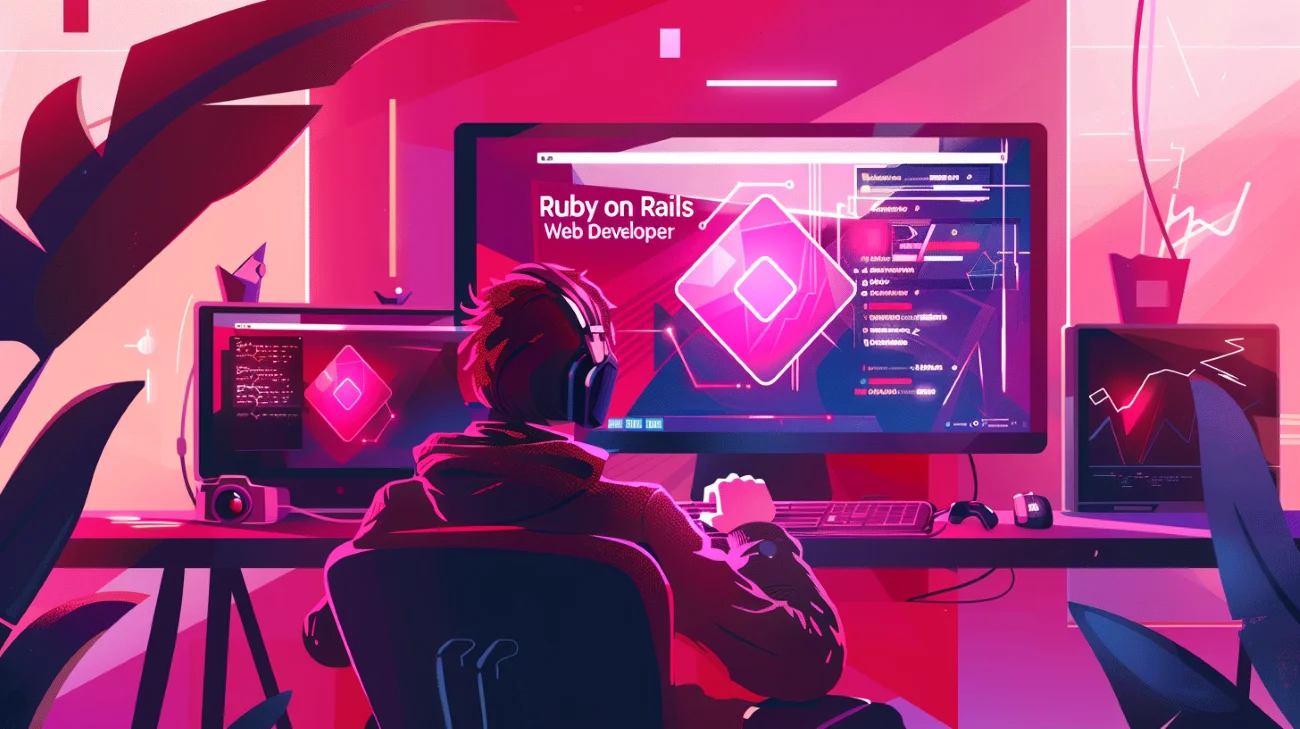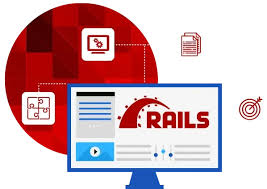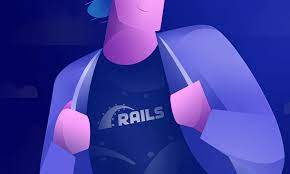
Essential Guidelines for Hiring the Perfect Ruby on Rails Software Developer


Essential Guidelines for Hiring the Perfect Ruby on Rails Software Developer: A Comprehensive Top 10 Checklist
In today's rapidly evolving technological landscape, the demand for skilled software developers is ever-growing. Among the plethora of programming languages and frameworks, Ruby on Rails (RoR) stands out as a powerful and versatile framework for web development. Hiring the right Ruby on Rails software developer is crucial for the success of your project. However, with so many candidates out there, it can be challenging to identify the perfect fit. This comprehensive guide presents a top 10 checklist of essential guidelines to streamline your hiring process and ensure you find the ideal Ruby on Rails software developer for your project. This comprehensive guide presents a top 10 checklist of essential guidelines to streamline your hiring process and ensure you find the ideal Ruby on Rails software developer for your project. Whether you're a startup embarking on your first web application or an established company looking to expand your development team, these guidelines will provide you with the insights and strategies needed to make informed hiring decisions. By understanding your project requirements, assessing candidates' technical proficiency, reviewing their past projects and portfolios, and evaluating their problem-solving skills, you can identify candidates who are well-equipped to tackle the challenges of Ruby on Rails development. Additionally, considering factors such as communication and collaboration skills, experience with third-party integrations, testing and debugging proficiency, knowledge of deployment and DevOps practices, cultural fit, and long-term potential will help you build a cohesive and high-performing development team. With thorough reference checks and diligent evaluation, you can confidently select the perfect Ruby on Rails software developer who will not only meet but exceed your expectations.
- Understand
Your Project Requirements
Before diving into the hiring process, it's essential to have a clear understanding of your project requirements. Define the scope, objectives, and desired outcomes of your project. Determine the specific skills and experience you're looking for in a Ruby on Rails developer. Are you building a web application, an e-commerce platform, or a content management system? Understanding your project requirements will help you identify candidates who possess the necessary expertise and align with your project goals.
- Assess Technical Proficiency
Technical proficiency is a fundamental requirement for any software developer, and Ruby on Rails is no exception. When evaluating candidates, assess their proficiency in Ruby programming language and RoR framework. Look for developers with a solid understanding of RoR conventions, MVC architecture, ActiveRecord, and RESTful API design principles. Evaluate their ability to write clean, efficient code and their familiarity with testing frameworks like RSpec and Capybara. Technical proficiency lays the foundation for successful project execution, so prioritize candidates with strong programming skills and RoR expertise.
- Review Past
Projects and Portfolio
A developer's past projects and portfolio provide valuable insights into their skills, experience, and work quality. When screening candidates, review their previous RoR projects and assess their complexity, functionality, and relevance to your project requirements. Pay attention to the scalability, performance, and usability of their applications. Look for developers who have experience working on projects similar to yours or have tackled challenges relevant to your industry. A robust portfolio demonstrates a developer's capabilities and track record of delivering successful RoR projects.
- Evaluate
Problem-Solving Skills
Effective problem-solving is a critical skill for any software developer, especially when working with complex frameworks like Ruby on Rails. During the interview process, assess candidates' problem-solving skills through coding exercises, algorithm challenges, or scenario-based questions. Evaluate their ability to analyze problems, devise solutions, and implement them efficiently using RoR principles and best practices. Look for developers who demonstrate creativity, critical thinking, and attention to detail in their problem-solving approach. Strong problem-solving skills are essential for overcoming technical challenges and delivering high-quality software solutions.
- Assess
Communication and Collaboration Skills
Effective communication and collaboration are essential for successful project execution, particularly in a team environment. When hiring a Ruby on Rails developer, assess candidates' communication skills, both verbal and written. Evaluate their ability to articulate ideas, explain technical concepts, and communicate effectively with team members, stakeholders, and clients. Look for developers who can collaborate seamlessly with designers, project managers, and other developers to achieve project goals. Effective communication fosters teamwork, enhances productivity, and ensures alignment throughout the development process.
- Consider
Experience with Third-Party Integrations
Many web applications require integration with third-party services, APIs, and libraries to enhance functionality and streamline processes. When evaluating candidates, consider their experience with integrating third-party services into Ruby on Rails applications. Assess their familiarity with popular APIs, such as payment gateways, social media platforms, and cloud services. Look for developers who have experience working with authentication mechanisms, data encryption, and API consumption in RoR projects. Experience with third-party integrations demonstrates a developer's ability to extend the functionality of your application and leverage external resources effectively.
- Evaluate
Testing and Debugging Skills
Testing and debugging are integral parts of the software development lifecycle, ensuring the reliability, stability, and security of your application. When hiring a Ruby on Rails developer, evaluate their proficiency in writing tests, debugging code, and identifying potential issues. Look for candidates who are familiar with testing frameworks like RSpec, Capybara, and FactoryGirl, and understand the importance of test-driven development (TDD) and behavior-driven development (BDD). Assess their ability to write comprehensive test suites, simulate user interactions, and troubleshoot errors effectively. Strong testing and debugging skills are essential for maintaining code quality and minimizing the risk of bugs and vulnerabilities.
- Assess
Knowledge of Deployment and DevOps Practices
Deployment and DevOps practices play a crucial role in delivering and maintaining scalable, reliable web applications. When hiring a Ruby on Rails developer, assess their knowledge of deployment processes, server configuration, and DevOps tools and practices. Look for candidates who are familiar with deployment platforms like Heroku, AWS, or Docker, and understand continuous integration and continuous deployment (CI/CD) pipelines. Evaluate their ability to configure servers, manage dependencies, and automate deployment tasks using tools like Capistrano or Ansible. Knowledge of deployment and DevOps practices enables developers to streamline the deployment process, improve deployment reliability, and minimize downtime.
- Consider
Cultural Fit and Long-Term Potential
In addition to technical skills and experience, consider the cultural fit and long-term potential of candidates within your organization. Assess their alignment with your company's values, culture, and working environment. Look for developers who are passionate about their work, eager to learn and grow, and committed to delivering value to your team and clients. Consider candidates' career goals, aspirations, and willingness to contribute to the success of your organization in the long run. Building a cohesive team with shared values and vision fosters collaboration, innovation, and mutual success.
- Conduct
Thorough Reference Checks
Before making a hiring decision, conduct thorough reference checks to validate candidates' qualifications, experience, and suitability for the role. Reach out to former employers, colleagues, or clients to gather feedback on candidates' performance, work ethic, and interpersonal skills. Ask specific questions related to their RoR expertise, problem-solving abilities, communication skills, and overall contributions to past projects. Reference checks provide valuable insights into candidates' professional reputation, reliability, and suitability for your team. Take the time to verify candidates' credentials and gather multiple perspectives to make an informed hiring decision.
Conclusion
Hiring the perfect Ruby on Rails software developer requires careful consideration of various factors, including technical proficiency, past experience, problem-solving skills, communication abilities, and cultural fit. By following this comprehensive top 10 checklist of essential guidelines, you can streamline your hiring process and identify the ideal candidate for your project. Remember to assess candidates thoroughly, evaluate their qualifications against your project requirements, and prioritise those who demonstrate the skills, experience, and attributes necessary for success. With the right Ruby on Rails developer on board, you can embark on your project with confidence and drive towards achieving your goals.
For expert assistance in finding top-tier Ruby on Rails developers, consider partnering with SkedGroup. Our dedicated team specialises in connecting businesses with skilled developers who can drive your project forward with efficiency and excellence. Reach out to us today to learn more about how we can support your development needs and help you achieve your goals.


Recently Blogs
-
Top 5 Reasons Hiring Custom Software Development
02 Aug 2024, By Admin
-
How AI Will Reshape the Industry
02 Aug 2024, By Admin
-
A Guide to the Software Engineering Development Process
02 Aug 2024, By Admin
-
Essential Guidelines for Hiring the Perfect Ruby on Rails Software Developer
02 Aug 2024, By Admin
-
Lorem ipsum dolor sit amet consectetur
02 Aug 2024, By Admin